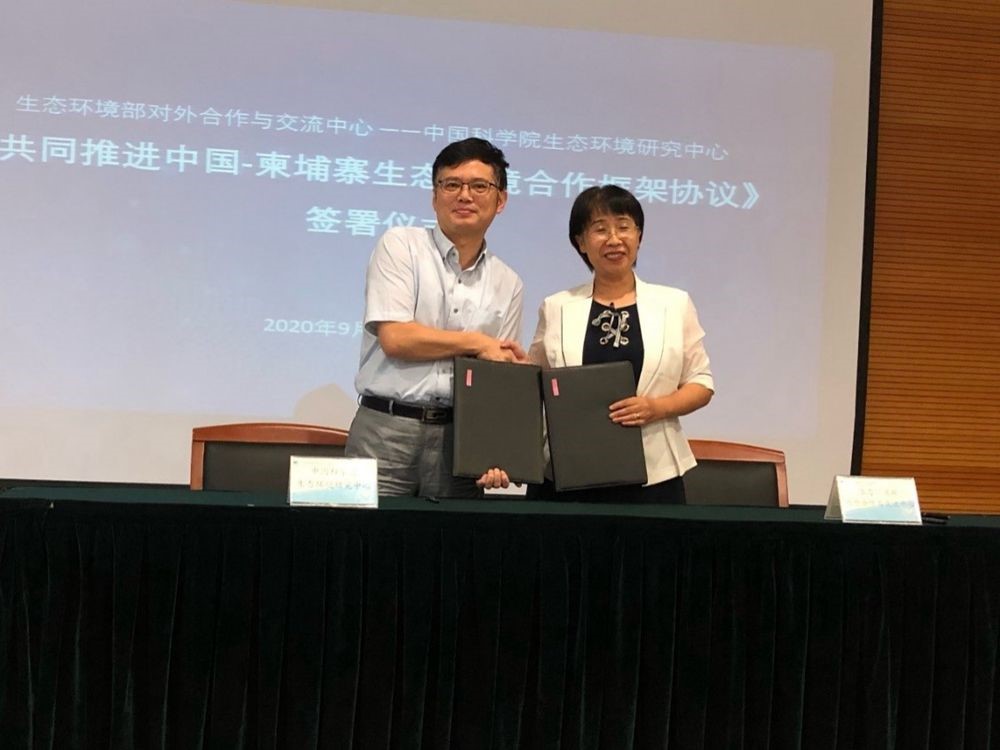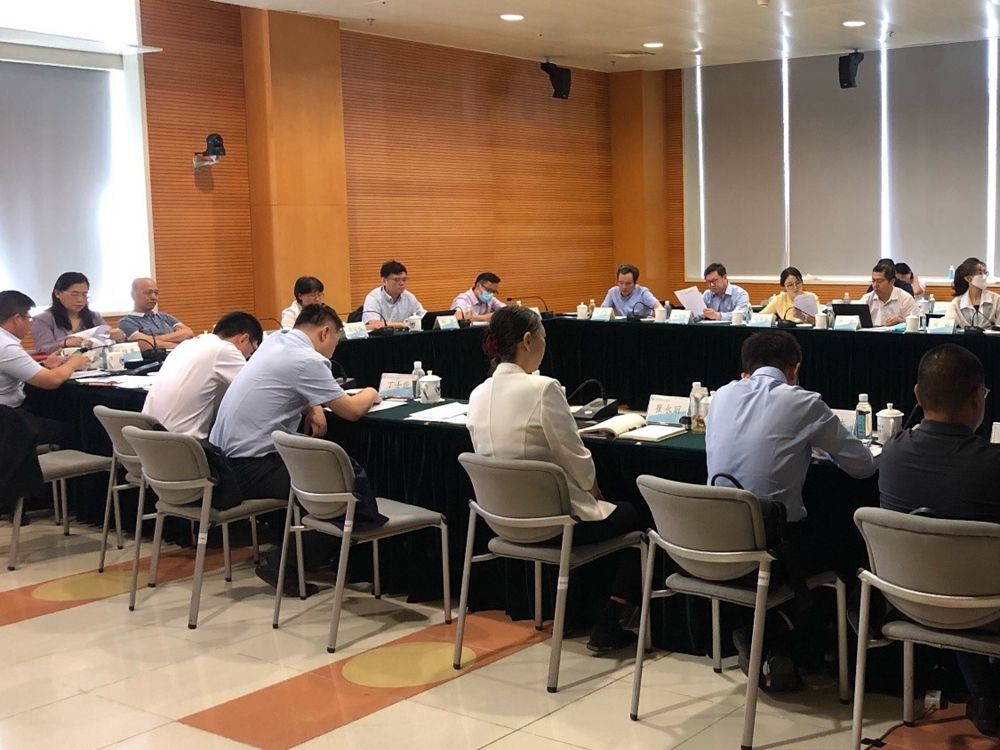| Location: Home>News>Events |
| CEWE Attends the 3rd Meeting of the Steering Committee of the China-Cambodia Environmental Cooperation Center Preparatory Office |
|
|
On September 2, the Research Center for Eco-Environmental Sciences (RCEES) of the Chinese Academy of Sciences (CAS) and the Foreign Environmental Cooperation Center (FECO) of the Ministry of Ecology and Environment (MEE) organized a Seminar on Jointly Building a Green Belt and Road-Focusing on Green Innovation for Businesses to “Go Global” in the Post-pandemic Era and a ceremony for signing the Framework Agreement on Jointly Promoting China-Cambodia Ecological Environment Cooperation. Attendees include Xiao Xuezhi, the Deputy Director General of the International Cooperation Department of MEE, Chen Qizhen, the Deputy Director of the Administrative Center for China’s Agenda 21 under the Ministry of Science and Technology (MOST), Jiang Yiqi, the Deputy Director of the Asian and African Affairs Division of the International Cooperation Bureau, CAS, and leaders and experts from over 10 institutions and enterprises including the Chinese Academy of International Trade and Economic Cooperation (CAITEC), China Petrochemical Corporation (Sinopec Group), Power Construction Corporation of China (POWERCHINA), China Communications Construction Company Limited (CCCC), and China Association of Environmental Protection Industry (CAEPI). At the event, Xiao Xuezhi and Jiang Yiqi respectively outlined the international cooperation framework and key directions of MEE and CAS under the Belt and Road initiative, and emphasized the importance of inter-ministerial cooperation in the implementation of green development philosophy. Delegates from institutions and enterprises shared their experiences in carrying out international cooperation in eco-environment protection under the Belt and Road initiative, and expressed their hope to jointly explore a cooperation mechanism for government, enterprises, universities and research institutions to work together. Yang Min, Deputy Director of RCEES and Zhou Guomei, Deputy Director of FECO, signed the Framework Agreement on Jointly Promoting China-Cambodia Ecological Environment Cooperation under the witness of all of the participants. As noted by Yang Min, in view of the rapid economic development of the countries along the Belt and Road in recent years, China should employ its advantages in experience and technology to assist these countries in prevention of environmental pollution. It is now the time to integrate all of the resources together, and give full play to the initiatives of the governmental agencies, enterprises, universities and research institutes in assisting the developing countries to achieve green development. Zhou Guomei figured out that the signing of the agreement has now opened a gate for further strengthening cooperation between the two institutions, and both sides should share resources and complementary advantages in supporting the construction of a green Belt and Road. Since 2016, with the support of the Ministry of Science and Technology’s Key Project on International Sci-Tech Innovation Cooperation as Part of a National Key R&D Program, RCEES has carried out a series of practical cooperation with the Cambodian Ministry of Environment (MOE) in personnel training, scientific research, and laboratory capacity building. The Chinese side has denoted the instruments for online water quality monitoring in Mekong River and laboratory analysis, which greatly strengthened Cambodia’s capabilities in water quality monitoring. Since 2017, CEWE has participated the efforts of MEE in promoting the establishment of the China-Cambodia Environmental Cooperation Center. Looking ahead, RCEES will work with FECO for resource sharing and win-win results. They will further expand the breadth and depth of China-Cambodia cooperation in environmental science and technology around the themes of policy exchanges, joint research, and capacity building, and promote the establishment of the China-Cambodia Environmental Cooperation Center as a model for building a green Belt and Road. Yang Min, Deputy Director of RCEES, and Zhou Guomei, FECO of Deputy Director, after signing the agreement Scene on the seminar
Office of International Cooperation, RCEES, CAS CAS-TWAS Centre of Excellence for Water and Environment September 2, 2020 |

